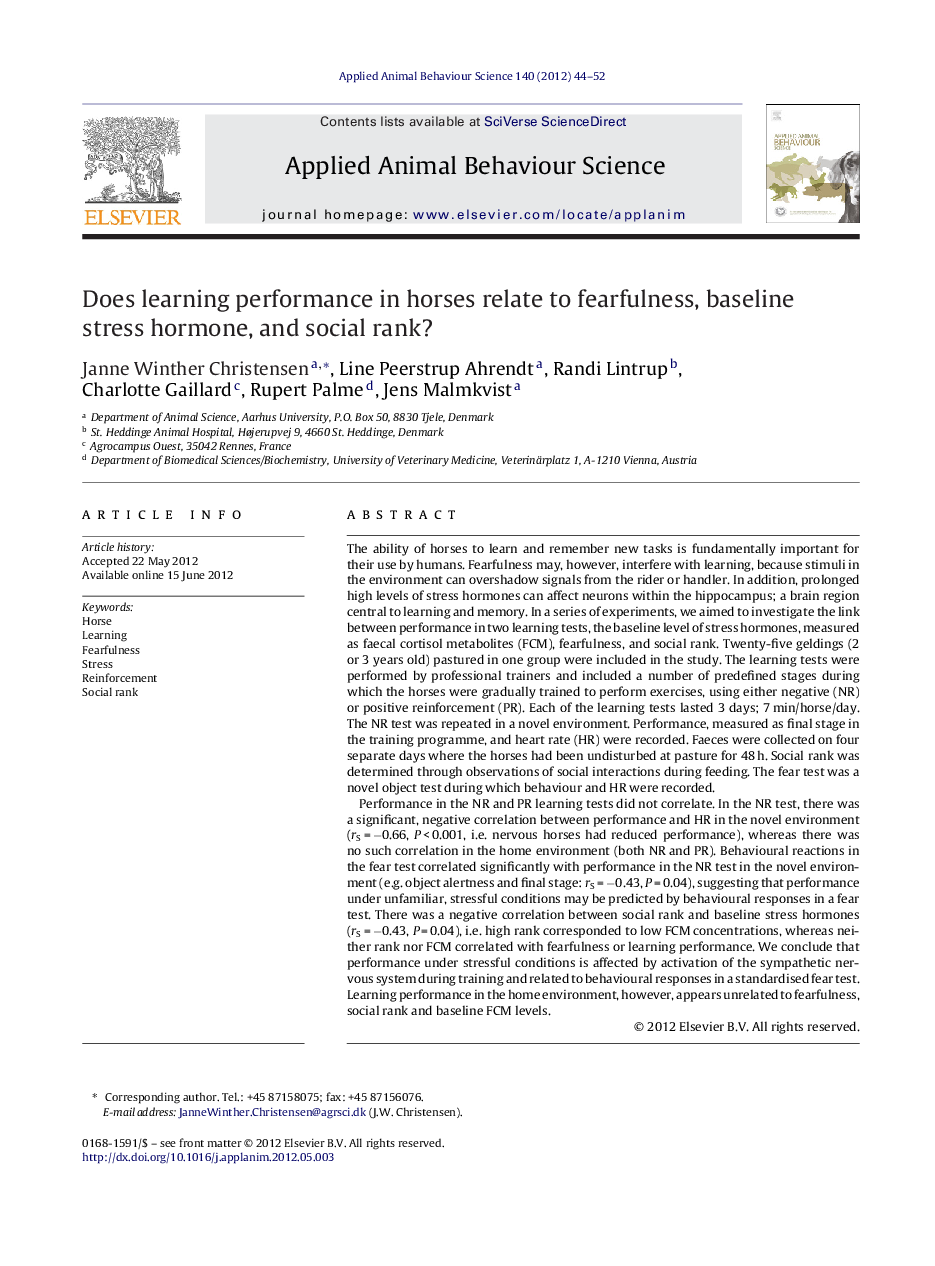| کد مقاله | کد نشریه | سال انتشار | مقاله انگلیسی | نسخه تمام متن |
|---|---|---|---|---|
| 4522912 | 1625373 | 2012 | 9 صفحه PDF | دانلود رایگان |

The ability of horses to learn and remember new tasks is fundamentally important for their use by humans. Fearfulness may, however, interfere with learning, because stimuli in the environment can overshadow signals from the rider or handler. In addition, prolonged high levels of stress hormones can affect neurons within the hippocampus; a brain region central to learning and memory. In a series of experiments, we aimed to investigate the link between performance in two learning tests, the baseline level of stress hormones, measured as faecal cortisol metabolites (FCM), fearfulness, and social rank. Twenty-five geldings (2 or 3 years old) pastured in one group were included in the study. The learning tests were performed by professional trainers and included a number of predefined stages during which the horses were gradually trained to perform exercises, using either negative (NR) or positive reinforcement (PR). Each of the learning tests lasted 3 days; 7 min/horse/day. The NR test was repeated in a novel environment. Performance, measured as final stage in the training programme, and heart rate (HR) were recorded. Faeces were collected on four separate days where the horses had been undisturbed at pasture for 48 h. Social rank was determined through observations of social interactions during feeding. The fear test was a novel object test during which behaviour and HR were recorded.Performance in the NR and PR learning tests did not correlate. In the NR test, there was a significant, negative correlation between performance and HR in the novel environment (rS = −0.66, P < 0.001, i.e. nervous horses had reduced performance), whereas there was no such correlation in the home environment (both NR and PR). Behavioural reactions in the fear test correlated significantly with performance in the NR test in the novel environment (e.g. object alertness and final stage: rS = −0.43, P = 0.04), suggesting that performance under unfamiliar, stressful conditions may be predicted by behavioural responses in a fear test. There was a negative correlation between social rank and baseline stress hormones (rS = −0.43, P = 0.04), i.e. high rank corresponded to low FCM concentrations, whereas neither rank nor FCM correlated with fearfulness or learning performance. We conclude that performance under stressful conditions is affected by activation of the sympathetic nervous system during training and related to behavioural responses in a standardised fear test. Learning performance in the home environment, however, appears unrelated to fearfulness, social rank and baseline FCM levels.
Journal: Applied Animal Behaviour Science - Volume 140, Issues 1–2, August 2012, Pages 44–52